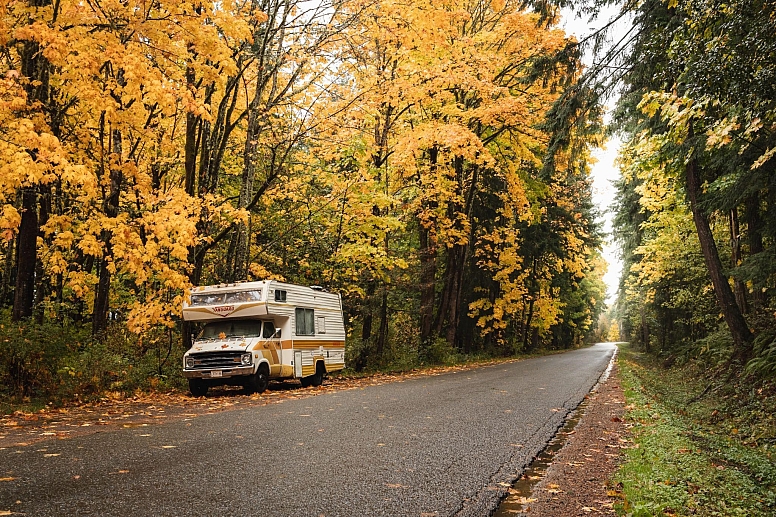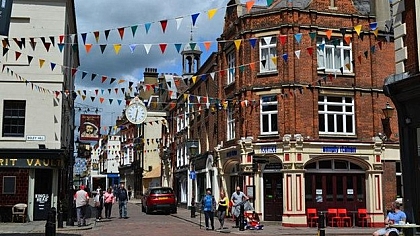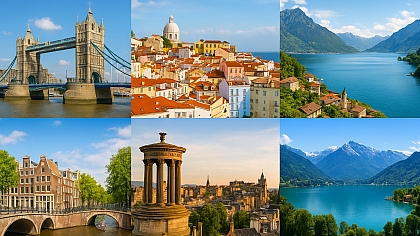
Experience Comfort: Explore Europe in a Comfortable RV
Europe has long been one of the most sought-after tourist destinations for RV vacations. The sheer number of scenic locations you can visit on land makes the long drives truly worthwhile.
These days, you can also find both local and online area guides helpful during lengthy travels, especially in unfamiliar areas in Europe.
If you plan to explore Europe in an RV, this is a good read for you, as this article starts by answering the following questions.
What are the perks of exploring Europe in an RV? What do you need to prepare when you decide to travel in an RV? Does Europe accept RV travellers? How much will such a trip cost? What problems can you encounter when travelling in an RV, and what are their solutions?
Read on to learn why exploring Europe in an RV is one of the best ways to enjoy the continent. You’ll know what to prepare when travelling in an RV and the answers to problems you might encounter along the way.
Start Your European RV Escapade
Travelling in Europe is an exciting adventure and one of the best ways to experience the scenic beauty of the countryside. You get to enjoy the air, the subtle elevation of its roads, the sights, and the cities that you’ll pass through as you dart through the continent in an RV
Though the thought of driving across Europe on a campervan or RV is enticing, you should know when to go there. There are three seasons in which you can plan your European RVing:
• Summer, which is June to August: This is peak season, and many are out in the countryside, and tourist locations are jammed with people., There are instances where your vacation time comes during summer, and if that’s the case, it’s okay in most of Europe. Just mind the increased volume of tourists.
• Late spring or early fall: These are months that shoulder summer: April, May, September, and October. It is by far the best season to tour Europe in a motorhome. There will be fewer tourists on the road, and you’ll have fewer hassles in your travel experience.
• Winter, which is November to March: You may have a good trip, but you’ll go mainly around the southern areas of the continent. Going north will pit you with winters, which may be problematic if you travel by road.
Travelling in an RV has many benefits, such as savings on hotels and roadside inns. You’ll spend less when you can sleep in your motorhome and park anywhere. You’ll have more money to spend on other things on your trip.
The next thing you will need to plan for is a budget for your cross-continent RV vacation. Here are some things you will need to prepare money for when you reach Europe.
• Camper or RV: It depends on the rate of the local RV rental company, but it might cost you around $700 to $900 per week. The amount is far cheaper than spending the night in a hotel, which can run your bill up to thousands of dollars.
When choosing a campervan, ensure that the model you select gives you maximum comfort and safety, just like the C-Tourer.
• Fuel: The lifeblood of your travel is fuel, and you need to stock up on that. You’ll need pocket money for this item as you regularly gas up daily. Bills for fuel may reach up to $140 or more to fill up a 25-gallon tank.
• Food: You can spend according to what you want to eat. Dining in restaurants will cost more than cooking your own. It will be more fun to cook your food outdoors, but it’s more hassle as you need to clean up after.
• Data: You’ll need an internet connection and make calls. The price for this will depend on the local network provider or the phone company that offers data services in Europe.
Things You Should Never Forget
Once you pick your vacation season, you’ll need to prepare everything you need to bring for your trip. Things that you must bring are items that you will need during the journey itself, like food, gas, batteries for charging, first-aid kits, medicine, bedding, and also envelopes and small boxes for when you want to send mail, postcards, or small souvenirs back to the U.S.
Troubleshooting Your RV: Problems You May Encounter and Solutions
Many things can go wrong on any trip, but if you come prepared for the worst, you’ll always have the means to troubleshoot. Here are some of the problems you might encounter and some solutions.
• Carparks are closed during the off-season: You might find yourself looking for a spot to park your RV, but you notice that parks are closed during the off-season. The answer to this problem is to look for free campsites in Europe. You can just look for these sites online, or in most areas, you can just park your RV on the side of the road.
• Mechanical problems: If you’re a mechanic or have someone in your group, you can save a lot instead of hiring a local. You only need spare parts for your RV, which you can buy in local shops
• Difficult in directions: You may have difficulty travelling, especially on unfamiliar roads in the European continent. You can hire guides or use travel apps, Google Maps, and other GPS-based travel companions to find your way.
• Internet connection and communication: You can buy a local SIM card for your phone and pay for data connection and calls. You’ll have good internet coverage in most European countries, and most hotels and inns have Wi-Fi connections you can use.












